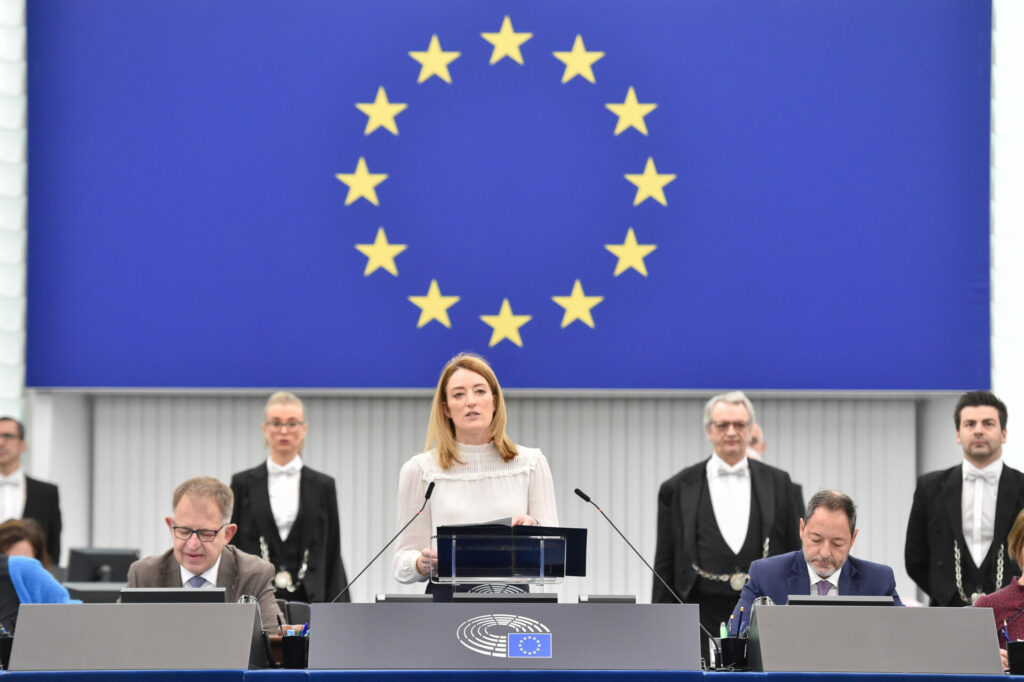The leaders of Renew Europe and Greens/EFA in the European Parliament have called for an internal investigation on Friday into a Moscow-funded influence network.
The network was identified by Czech intelligence services on Wednesday and was confirmed by Belgian Prime Minister Alexander De Croo to include Belgian lawmakers. The brewing scandal has reignited fears of foreign interference over a year after Qatargate.
On Wednesday, Prague announced that its intelligence services had uncovered a Moscow-backed network spreading pro-Russian propaganda about Ukraine through the website Voice of Europe, allegedly extending its influence to the European Parliament. Details, however, remain vague.
"Within this network, Russia has approached MEPs and paid to promote Russian propaganda, involving parliamentarians receiving money," articulated Belgian Prime Minister Alexander De Croo before the Belgian Chamber of Representatives on Thursday.
Valérie Hayer, French MEP and President of Renew Europe (centrists and liberals) drafted a letter to the President of the European Parliament, Roberta Metsola, demanding an "immediate and transparent" internal investigation in collaboration with national authorities.
In the run-up to the European elections in ten weeks, Hayer emphasised, "Voters need to know if MEPs or candidates are working with the support of Russia or its proxies; European democracy must be defended against these threats at all costs."
The Greens are also calling for a "rapid, thorough, Europe-wide investigation."
"Putin is attempting to get away with his war in Ukraine… it’s a direct assault on the very fabric of our democracy. Those politicians who received money need to be severely punished, both politically and legally," insisted Terry Reintke, the German candidate heading the Green party list for the election.
The Parliament is currently examining, in coordination with its institutional partners, the findings of the Czech authorities, especially regarding the media outlet ‘Voice of Europe,’ a spokesperson for the institution informed AFP.
Access to the institution is already prohibited for media outlets “on EU sanctions lists”, particularly due to misinformation about the war in Ukraine, adding that MEPs “are bound by clear rules of independence and ethics,” punishable by penalties.
The European Parliament has been shaken since December 2022 by the so-called Qatargate scandal, surrounding suspicions of corruption involving Qatar and Morocco.

